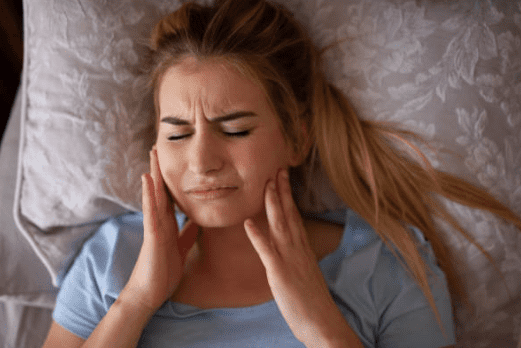What is TMJ?
The temporomandibular joint (TMJ) is the joint that connects your lower jaw, your mandible, to your skull, and you have a TMJ on both sides of your face. The abbreviation TMJ is also used as a blanket term to refer to all the health conditions associated with the joint, and there are estimated to be about 10 million Americans who suffer from TMJ disorder or temporomandibular joint dysfunctions.
What are the Symptoms of TMJ?
TMJ specialists agree that the types and severity of the symptoms that you experience due to TMJ will differ based on your specific condition or disorder, but the most common symptoms are:
- Facial pain
- Neck pain
- Stiff jaw
- Limited movement of the jaw
- Popping and clicking noises in the jaw
- Tinnitus (ringing of the ears)
- Vertigo
- Headaches
- Malocclusion (changes in upper and lower teeth alignment)
- Dental issues
TMJ Treatments
Because there are many different causes for TMJ, treatment plans can vary. Most doctors will start with conservative treatment plans at home that include:
- Icing the jaw
- Eating soft foods
- Jaw stretching and exercises
- Stress-reducing therapies
Medications can also be utilized, such as:
- NSAIDs
- Corticosteroids
- Muscle relaxers
- Antidepressants
- Local anesthetics
Physical therapy is another option, which includes different modalities such as:
- Acupuncture
- Resistance training
- Stretching
- Tissue mobilization
- Cold and heat therapies
If the more conservative methods of treatment aren’t helping, then your doctor might suggest that you seek out a TMJ specialist.
What Does a TMJ Specialist Do?
A TMJ specialist can treat your TMJ pain more aggressively. Some of the options for treatment that they may utilize are:
- Botox injections – Botox injections are used to relax the TMJ joint and help reduce pain in trigger points and from teeth grinding.
- Corrective dental treatments – Corrective dental treatments include solutions like braces, spacers, and retainers to correct your bite and teeth alignment, which reduces the stress and pressure on the TMJ joint.
- Orthotics – Also commonly called mouthguards, orthotics are custom fit to your mouth and used at night to prevent teeth grinding and improve jaw alignment.
- Arthrocentesis – Arthrocentesis is a procedure where excess fluid and debris are removed from the TMJ joint.
- TMJ replacement surgery – In rare cases and when all other forms of treatment have failed, TMJ replacement surgery may be considered.
If you’re suffering from TMJ pain, know that you don’t have to! At David Evans DDS, we are the premier TMJ Specialist in Denver and the leading TMJ Specialist in Boulder. Contact us today to hear more about TMJ and learn what treatment options are best for you!

